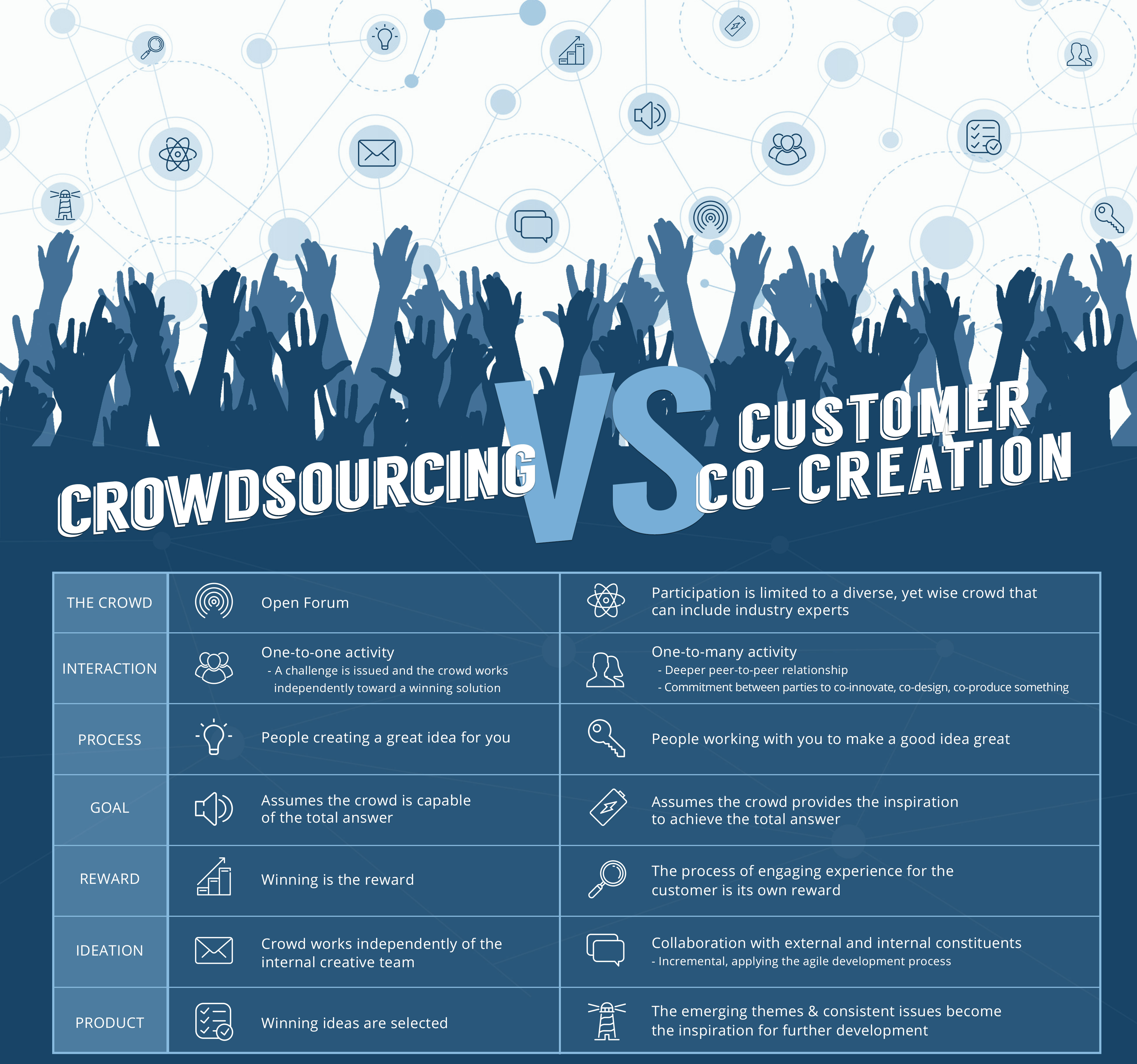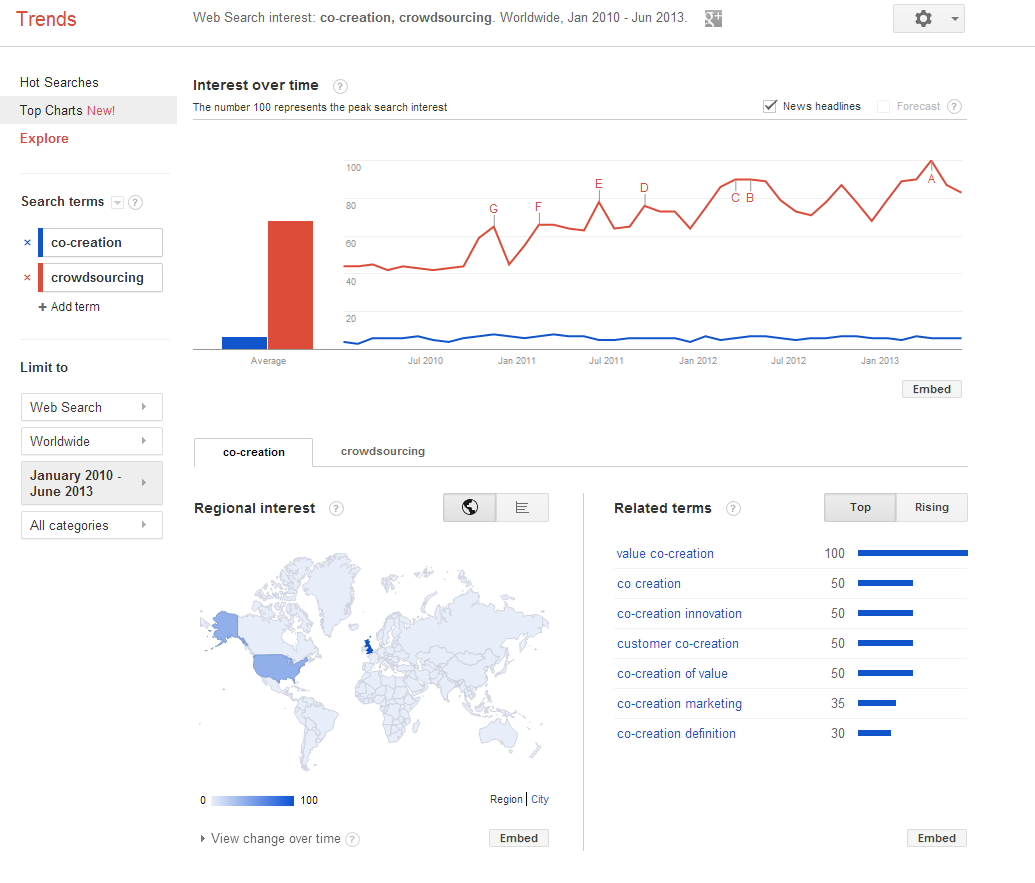
The term Crowdsourcing feels mainstream, but author Jeff Howe’s book on the subject is only five years old.
The term “Crowdsourcing” and the use of the crowd continues to evolve. Initially, most forms of crowdsourcing were based on cost savings measures. Essentially, firms could outsource manpower (e.g. Amazon Turk) or even its inventory (e.g. Stock Photo firms like ShutterStock or iPhotos) to the crowd.
Crowdsourcing may have also benefited from the recent recession with firms finding an inexpensive army of recently unemployed service providers. In fact, most of the negative stigma associated with crowdsourcing is the idea of finding cheap labor.
That said, the roots of crowdsourcing lie in open-sourcing. Perhaps the best example of open-sourcing would be the Linux operating system.
That is where crowdsourcing began to splinter from open-sourcing. In the open-sourcing paradigm, the process was an incremental journey. Passionate contributors worked to make their small personal input on the overall project. Collaboration and working together were more than implied, they were fundamental to the success of an open-sourced project.
Crowdsourcing more often than not is a winner take all concept. Whether it’s designing the next Doritos Super Bowl ad or building a more accurate algorithm for Netflix, there are clear winners.
My interest for capturing The Wisdom of Crowds lies in successful product ideation and I feel the best option to achieve that lies in customer co-creation and not crowdsourcing.
Why is that? Because I feel that Co-Creation, as opposed to Crowdsourcing is a collaborative experience. A collaborative, iterative and incremental development process has already been successfully applied in open-sourcing and agile software development. I believe that’s the blueprint we need to follow for successful customer co-creation.
As a basis for comparison, let me list key elements that are unique to each camp:
As you can see, the elements of Customer Co-Creation more closely align with the principles of incremental collaboration. Crowdsourcing is more of a poker tournament, where one person or team wins the pot.
Since the role of the market research function to leverage customer insights for better decisions (and in this case, better products), then it is Customer Co-Creation that the MR industry needs to embrace.
That might be news for the MR Sourcebooks. All of which have defaulted to the Crowdsourcing moniker as the umbrella to describe customer involvement in the ideation process. In fact, Quirks lists almost 250 possible research services including Crowdsourcing, but as of this writing, they have yet to create a category for Co-creation.
It’s time for the MR industry trade associations and journals to stop referring to customer-led innovation as Crowdsourcing and instead use the more accurate term of Customer Co-Creation.
Customer Co-creation has the potential of being a powerful new opportunity for our industry to finally put customers in the driver’s seat. This reciprocal relationship, consistent with the mindset of the social media generation can significantly impact the success rate of product ideation. A seat at the table, a long-stated goal of our industry, would be assured.
So is everyone on board with customer co-creation?
If we weren’t dealing with the realities of office politics and siloed approaches, then yes, I think everyone would be on board. The key barrier to successful customer co-creation will likely come from internal politics. Expecting the incumbent creatives (e.g. ad agency, product/brand/marketing managers, R&D Departments, etc.) to willingly follow the wisdom of crowds is naive. This is a threat to their autonomy. We must anticipate their resistance and take every step to position customer ideation as “inspiration” and not “final solution.”
If a company truly wants to integrate customer co-creation into their ideation process, they need to be mindful of the advice offered by Upton Sinclair who said “Never expect someone to understand change when their livelihood depends on not understanding it.”
Appendix: Crowdsourcing versus Co-Creation as a Google Search Term
Over the past two months, there has been a recent burst of trade articles looking to differentiate Crowdsourcing from Co-Creation. Doing a quick Google Analytics analysis on the level of search activity for the two terms, I can tell you that searches for Crowdsourcing exceed those for Co-Creation by a margin of nearly 10 to 1. And this ratio has stayed consistent for the past three years. So any recent surge I have seen towards Co-Creation is based on recent articles and has not filtered its way down to the mainstream. (Of course, I will be the first to tell you that August 2013 marked the tidal change towards customer co-creation, should my “Spidey Sense” prove accurate).


